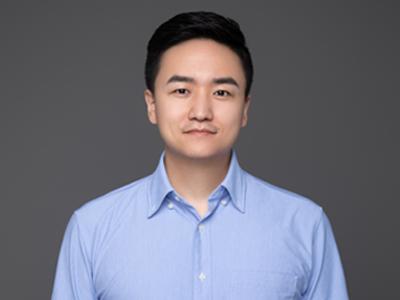Faculty
Introduction:
After graduation with a Bachelor’s degree in Biology at Wuhan University, I continued my scientific journey by working with Dr. Albert Reynolds at Vanderbilt University (Nashville, USA) as a graduate student. I used the classic mammalian epithelial model MDCK (Madin-Darby Canine Kidney) cells to understand how cells acquire the correct shapes to form an epithelial sheet that can be remodeled to produce three-dimensional tissue structures. This work showed that p120-catenin is a critical regulator of both cell adhesion and cortical tension and revealed an unexpected role for p120-catenin in promoting epithelial sheet maturation and lumen formation. As a postdoctoral fellow with Dr. Jennifer Zallen, I combined mechanical manipulation with time-lapse imaging of Drosophila embryos to investigate how cells sense and respond to mechanical force in vivo. I demonstrated that tricellular junctions where three cells meet are hotspots of tyrosine phosphorylation and essential tension-sensing structures in epithelia that regulate the stability of cell interactions under physiological force. This work identified a novel mechanotransduction pathway that employs reversible tyrosine phosphorylation of the conserved actin-binding protein Canoe/Afadin as a mechanism to dynamically couple tricellular adhesion with mechanical forces during epithelial remodeling. Since 2021, I joined SUSTech University (Shenzhen, China) as an Assistant Professor at the College of Life Sciences. At SUSTech, my lab will combine the strengths of cell culture and Drosophila embryos to identify novel tension-sensing molecules that are required for the mechanical regulation of critical cellular behaviors such as cell division, differentiation and migration.
Research Interests:
A universal property of cells is the ability to detect and respond to mechanical stimuli. Mechanical forces influence cell fate, division, adhesion, and behavior. Bicellular and tricellular adherens junctions are two modular forms of cell-cell contact that mediate force-sensing and mechanotransduction. Yu lab focuses on investigating mechanosensory mechanisms of these two modular types of cellular junctions. The major findings include identification of signal pathways mediating mechanosensing at cell junctions, and establishing causal relationships between junctional mechanosensing and biological functions such as lumen formation and cell rearrangements.
Professional Experience:
2015-12 to 2021-07:
Post-doctoral Research Fellow
Sloan Kettering Institute, NY, USA.
Advisor: Dr. Jennifer A. Zallen (Howard Hughes Medical Institute Investigator)
Educational Background:
2008-08 to 2015-11:
Doctor of Philosophy (Ph.D), Cancer Biology
Vanderbilt University, Nashville TN, USA
2004-09 至 2008-06
Bachelor of Science (B.S.), Biological Science National Training Base
Wuhan University, Wuhan, China
Honors & Awards:
1. Tier one award to Freshmen with top college-entry scores, Wuhan University, 2004
2. Best Bachelor Thesis of the Year, Wuhan University, 2008
3. Best Poster Presentation Award at Vanderbilt Ingram Cancer Center retreat, 2014
4. 3rd place in Vanderbilt Institute of Global Health Case Competition, 2014
Top Peer-Reviewed and High-Scoring Abstract, Host-Tumor Interactions Program and Program in Cancer Biology, 14th Joint Retreat, Vanderbilt University, 2014
Selected Publication:
1. Huapeng H.Yu, Jennifer A. Zallen. Abl and Canoe/Afadin mediate mechanotranduction at tricellular junctions. Science (2020)
Huapeng H. Yu, Michael R. Dohn, Nicholas O. Markham, and Robert J. Coffey, Albert B. Reynolds. p120-catenin controls contractility along the vertical axis of epithelial lateral membranes. The Journal of Cell Science (2015)



